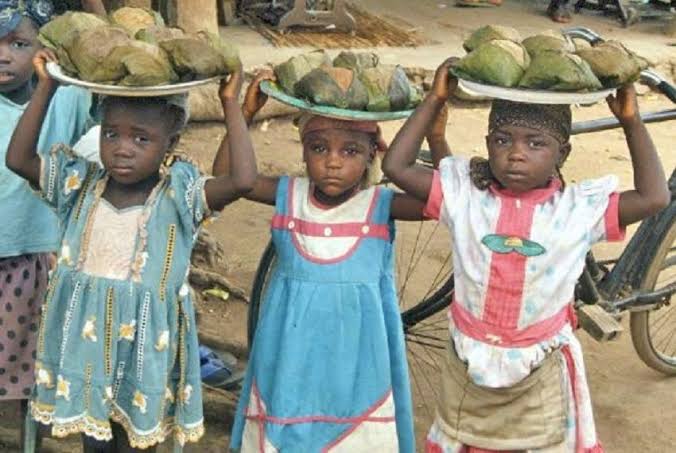Written By:SIR PAUL NWOSU
Tomorrow, June 12, is World Day Against Child Labour. The day was first launched in 2002 by the International Labour Organization, an arm of United Nations. It is to bring the attention of the world to the obnoxious cases of Child Labour to put an end to the practice.
Child Labour is any work a child below the age of 18 is engaged in. Child Labour adversely affects children’s health in different ways, including the inhibition of their developments socially, physically, morally and mentally. Experts identified poverty, broken homes, culture, family size, greed and illiteracy as the causes of Child Labour.
Despite the fact that some states in Nigeria have passed the Child Rights Act, cases of Child Labour and rampant abuse of children still persist. Children are still being trafficked to cities to work as house boys and girls with no negotiated and agreed wages or conditions of service. Those that were lured into such work with assurances that they would be sent to school, often times, do not get the promised education.
Kids are still seen on busy roads and highways hawking wares. In the process, some of them are knocked down by vehicles and inflicted lifelong injuries or even killed. Some of them fall prey to sexual predators who take undue advantage of their innocence to violate them. Because of their inexperience and naivety, some of them have been unwitting agents and couriers to hard drug dealers.
A good number of them have even succumbed to the temptation of using these substances at their tender ages. Until recently, when COVID-19 compelled the northern states to begin to take a hard look at their religious tradition that permits child begging or Almajeri, every public space in that region had been awash with children sent out to beg for money and food.
In Igbo land, it is common practice for a child to be sent to undergo apprenticeship or “Igba boy” with an understanding that the boy would be set up in business at the end of his apprenticeship. However, there are increasing situations where some of these entrepreneurs have trumped up flimsy excuses just to evade their agreements with the adolescent apprentices, thereby leaving them in dilemma that could lead them into crime.
Anambra State is lucky because it already has a legal instrument to wage a relentless war against the incidents of Child Labour and every form of child abuse. The Anambra State Child law of 2006 is very explicit on the issue of Child Labour. Section 31 of the law states that “no child shall be subjected to any forced or exploitative labour” and that no child is “required, in any case, to lift, carry or move anything so heavy as to be likely to adversely affect his physical, mental spiritual, moral or social development”.
It also says that no child shall be “employed as a domestic help outside his own home or family environment” and that no child shall be “employed or work in an industrial undertaking…”. Any person who contravenes this law commits an offence and is liable, on conviction, to a fine not exceeding fifty thousand naira or imprisonment.
Section 33, subsection 2 of the law further states inter alia that a child shall not be used “for the purpose of begging for alms, guiding beggars, prostitution, domestic or sexual labour or for any unlawful or immoral purpose; or as a slave or for practices similar to slavery such as sale or trafficking of the child, debt bondage or serfdom and forced or compulsory labour. A person who contravenes these laws commits an offence and is liable, on conviction, to imprisonment for a term of ten years.
No doubt, we have a duty to educate, protect and care for our children. That’s the only way to assure a brighter future of our state and country. Let’s say NO to Child Labor and YES to education.





Comments are closed for this post.